Q&A
Some frequently asked questions about acupuncture are answered in this section. Call TOTEM Acupuncture if you are ready to improve your life through acupuncture or have other questions.
Q: Description of Acupuncture
A: Acupuncture is a long-revered form of holistic health care that has evolved into a complete method. Millions of people have been helped by this system to get well and stay healthy.
An acupuncturist will activate the body’s Qi by placing fine, sterile needles at the body’s specific acupoints. This will encourage natural healing by enhancing immunity and physical and emotional health. Acupuncture is a safe and painless process that can address many medical issues and improve overall function and well-being.
Q: How will my acupuncture session begin?
A full health history will be documented during the initial exam. Questions will be asked regarding health and lifestyle and any active symptoms. Your acupuncturist may also conduct a physical exam, including checking pulses and tongue diagnosis. This information is then used to completely and accurately determine any blockages or imbalances of Qi. You may receive an acupuncture treatment after the interview. Visits with your acupuncturist can last from 30 to 90 minutes.
Q: Why is my pulse important for acupuncture?
A: Each wrist has 12 places that your acupuncturist will feel, corresponding to specific meridians and organs. In this stage, there are 27 individual qualities that can be used to understand your organs and overall health. Many problems can appear in the pulse.
Q: Why is my tongue important for acupuncture?
A: Because the tongue is a map of the body, reflecting the general health of organs and meridians, your acupuncturist will look at its color, shape, coating and any cracks there might be.
Q: How can herbs assist my acupuncture treatments?
A: Herbs can be a useful supplement to acupuncture. They can strengthen and support the body as well as remedy problems like colds, fevers or acute pains. Your practitioner may suggest starting with herbs before adding acupuncture to your treatment in the future. This can increase your internal strength and help your body utilize the full benefits of acupuncture.
Q: Can children receive acupuncture?
A: Yes, in fact, children can respond faster than adults. Your acupuncturist may massage the acupuncture points rather than using needles if your child has a fear or dislike of them. This is a process known as acupressure or tuina.
Q: How many acupuncture sessions will I need?
A: The amount of treatments necessary varies from person to person. Some experience immediate relief, while others take months or even years to achieve results. Acute conditions are generally resolved in less time than chronic ones. A minimum of one per month is recommended to see significant changes.
The number of treatments depends on various factors, such as your constitution, the difficulty and length of the problem and the quality and quantity of your Qi. You may be prescribed more than one treatment per week, or less frequent visits to maintain general health or to get a seasonal tune up.
Q: What is the cost of acupuncture sessions?
A: Rates depend upon what treatments are performed and therefore can vary. We suggest consulting with your acupuncturist about costs.
Q: Does insurance cover acupuncture?
A: Insurance coverage can differ from state to state. Ask your insurance provider what kind of care is covered. Here are a few questions to ask:
Does my insurance plan cover acupuncture?
How many sessions per calendar year are covered?
Do I need to have a referral from another doctor?
Will I have a co-pay?
What is my deductible?
If yes, have I met it yet?
Q: What do I need to do to prepare for my acupuncture session?
A:
Bring any questions you may have. At TOTEM Acupuncture we are here to help you.
Wear loose, comfortable clothing for easy access to acupuncture points.
Do not eat large meals just before or after your visit.
Avoid stressful situations. Make time to relax and be sure to get plenty of rest.
After the visit, refrain from heavy exercise, overexertion and drugs or alcohol for up to six hours.
Between visits, take notes of changes that may have happened, such as the alleviation or movement of pain, or changes in the frequency and types of issues.
Q: Is acupuncture safe?
A: Acupuncture is incredibly safe and yields no side effects. It is natural, drug-free and leads to feelings or relaxation and well-being. There is no danger of infection from needles used for acupuncture because they are sterile and discarded after being used once.
Q: What education do acupuncturists need to practice?
A: Acupuncturists have undertaken three to four years of extensive and thorough graduate-level training at schools that are nationally certified. Every acupuncturist must pass a national exam and there are strict guidelines in every state to practice acupuncture.
Q: What can acupuncture treat?
A: The National Institute of Health (NIH) and The World Health Organization (WHO) consider acupuncture an effective treatment for many medical problems. Below are some of the health issues that acupuncture can treat effectively:
• Addiction
• Anxiety
• Arthritis
• Asthma
• Bronchitis
• Carpal tunnel syndrome
• Chronic fatigue
• Colitis
• Common cold
• Constipation
• Dental pain
• Depression
• Digestive trouble
• Dizziness
• Dysentery
• Emotional problems
• Eye problems
• Facial palsy
• Fatigue
• Fertility
• Fibromyalgia
• Gingivitis
• Headache
• Hiccough
• Incontinence
• Indigestion
• Irritable bowel syndrome
• Low back pain
• Menopause
• Menstrual irregularities
• Migraine
• Morning sickness
• Nausea
• Osteoarthritis
• Pain
• PMS
• Pneumonia
• Reproductive problems
• Rhinitis
• Sciatica
• Seasonal affective disorder (SAD)
• Shoulder pain
• Sinusitis
• Sleep disturbances
• Smoking cessation
• Sore throat
• Stress
• Tennis elbow
• Tonsillitis
• Tooth pain
• Trigeminal neuralgia
• Urinary tract infections
• Vomiting
• Wrist pain
